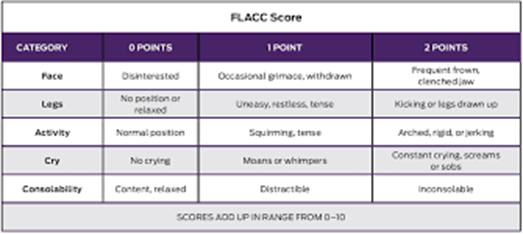A nurse is planning care for a child who is in the acute stage of nephrotic syndrome.
Which of the following interventions should the nurse include in the plan of care?
Weigh the child once per day.
Position the child supine at bed time.
Limit calorie intake to 45 cal/kg/day.
Increase fluid intake to 2 L/day.
The Correct Answer is A
A. Daily weight monitoring is essential in managing nephrotic syndrome to assess for fluid retention and response to treatment.
B. Positioning the child supine at bedtime is not specific to the management of nephrotic syndrome.
C. Calorie intake may need to be increased rather than limited in nephrotic syndrome to compensate for protein loss and meet increased energy needs.
D. Fluid intake may need to be restricted rather than increased, depending on the child's fluid status and response to treatment.
Nursing Test Bank
Naxlex Comprehensive Predictor Exams
Related Questions
Correct Answer is ["B","D","E"]
Explanation
A. Meperidine is a narcotic analgesic used for pain relief and is not typically indicated for the management of cystic fibrosis.
B. Dornase alfa is a medication commonly used in the management of cystic fibrosis to help improve respiratory function by reducing the viscosity of mucus in the airways.
C. While acetaminophen may be used for managing fever or pain in children with cystic fibrosis, it is not specifically indicated as a standard medication for cystic fibrosis management.
D. Children with cystic fibrosis often have deficiencies in fat-soluble vitamins (A, D, E, and K) due to malabsorption. Fat-soluble forms of these vitamins are typically prescribed to address these deficiencies.
E. Pancreatic enzyme replacement therapy, such as pancreatic lipase, is necessary for children with cystic fibrosis who have pancreatic insufficiency. This medication helps improve digestion and absorption of nutrients by replacing the deficient pancreatic enzymes.
Correct Answer is C
Explanation
A. Visual analog scales may not be appropriate for toddlers who are cognitively impaired and unable to understand abstract concepts.
B. FACES pain scale relies on the child's ability to express emotions through facial expressions, which may be limited in cognitively impaired toddlers.
C. FLACC (Face, Legs, Activity, Cry, Consolability) pain scale is a validated tool for assessing pain in young children, including those who are cognitively impaired.
D. CRIES pain scale is typically used for neonates and infants up to 6 months of age and may not be suitable for toddlers.

Whether you are a student looking to ace your exams or a practicing nurse seeking to enhance your expertise , our nursing education contents will empower you with the confidence and competence to make a difference in the lives of patients and become a respected leader in the healthcare field.
Visit Naxlex, invest in your future and unlock endless possibilities with our unparalleled nursing education contents today
Report Wrong Answer on the Current Question
Do you disagree with the answer? If yes, what is your expected answer? Explain.
Kindly be descriptive with the issue you are facing.
